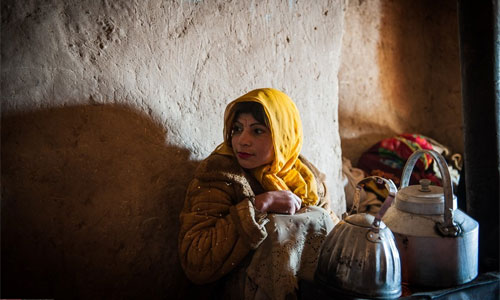The evolution of women’s rights have passed many ups and downs. Social and political issues have had direct impacts on the rights and freedoms of Afghan women. Tribal code of conduct and traditional culture have been one of the great drawbacks before the progress of women’s rights and liberty.
In post-Taliban and post-Mujahidin Afghanistan, although women were entitled equally with men and their freedoms and inherent rights were recognized constitutionally, shocking violence against women occurred and tragic story emerged regarding them. Afghan women in tribal belts bore the brunt of tribal tradition deeply imbedded in Afghan culture. Honor killing is prevalent in remote areas of Afghanistan.
For example, Rod Nordland, the New York Times correspondent, said in his book “The Lovers” that a number of girls who were raped had to marry their rapists based on the decision of tribal elders. He also pointed out that Bibi Aisha had increased backlash against women’s shelters after a picture showing that her nose had been cut off appeared on Time’s cover. “Bibi Aisha was widely criticized in Afghanistan after that cover picture – including by officials in the office of President Hamid Karzai – for bringing shame to her homeland,” Nordland maintained.
Pointing to King Amanullah Khan’s reform and modernization, Nordland said that Amanullah Khan’s movement did not bear the desired result in Afghanistan in the wake of backlash shown by conservatives. He said that when Amanullah returned from a visit to Europe “with his liberal minded queen, Soraya Tarzi, he declared at a public event that Islam did not require women to be covered, whereupon Queen Tarzi tore off her veil and the other government wives present did so as well.” He said that under Amanullah’s rule, women were allowed to divorce and to choose their husbands, bride prices were outlawed, women were encouraged to work and study.
However, mullahs and conservatives protested against his movement, which led to the collapse of his regime. Subsequently, his reforms were undone by his successors and the strides made in the sphere of women’s rights and liberty backtracked.
Even with democratic administration after the downfall of the Taliban’s regime, tribal code of conduct and parochial mindset regarding women’s rights held strong sway in Afghanistan. Notwithstanding strides made by Afghan women and high official positions held by them, violence continues unabated. As a result, Nordland quoted some women rights activists who were victims of violence themselves at home.
The country’s patriarchal system and traditional culture is believed to have tarnished Afghanistan at regional and global level. Local militia commanders and strongmen still control their villages with misogynistic view. In areas dominated by the Taliban, women’s rights and freedoms are curtailed to a great extent and the Taliban’s warped mind is imposed on locals, mainly women. A girls’ school was reportedly burnt down by the Taliban militants few days back in a district in Kabul.
Generally speaking, a large number of Afghan people are highly sensitive to the human rights discourse and deem them as western product. Worst, the Elimination of Violence Against Women law, which was legalized by Hamid Karzai’s decree, could not be approved by Afghan parliament as a result of backlash and sensitivity shown by some conservative MPs, including former warlords and Mujahidin.
Overall, tribal code of conduct and traditional mindset had huge bearing on women’s progress and those of their rights.
Meanwhile, Afghan women still fear the return of Islamic Emirate, which restricted women’s rights and freedoms based on radical interpretation of sharia law. Now Afghan women urge the Taliban negotiators, including the government, to include female representatives in the talks.
As far as tribal code of conduct is not reformed and some mullahs, especially those who pretend to be mullahs and dress like them, continue their exploitation on the grounds of religious terms, violence against women will not stop. That is, the Afghan Constitution approved in 2004 should be enforced thoroughly.
Afghan Constitution, which was approved with the presence of Afghan clergymen and former Mujahidin and warlords, leaves no room for gender discrimination. Article 22 states, “Any kind of discrimination and distinction between citizens of Afghanistan shall be forbidden. The citizens of Afghanistan, man and woman, have equal rights and duties before the law.”
The horizons of tribal locals will be broadened regarding the issue of women’s rights and liberty through founding schools and universities in every nook and cranny of the country. The Afghan government has to encourage the schooling of boys and girls, especially in tribal areas, through extending educational institutions and schools so that it could change not only locals’ mindset but also their customs.
Home » Opinion » Traditional Culture Has a Huge Bearing on Women’s Rights
Traditional Culture Has a Huge Bearing on Women’s Rights
| Hujjatullah Zia

